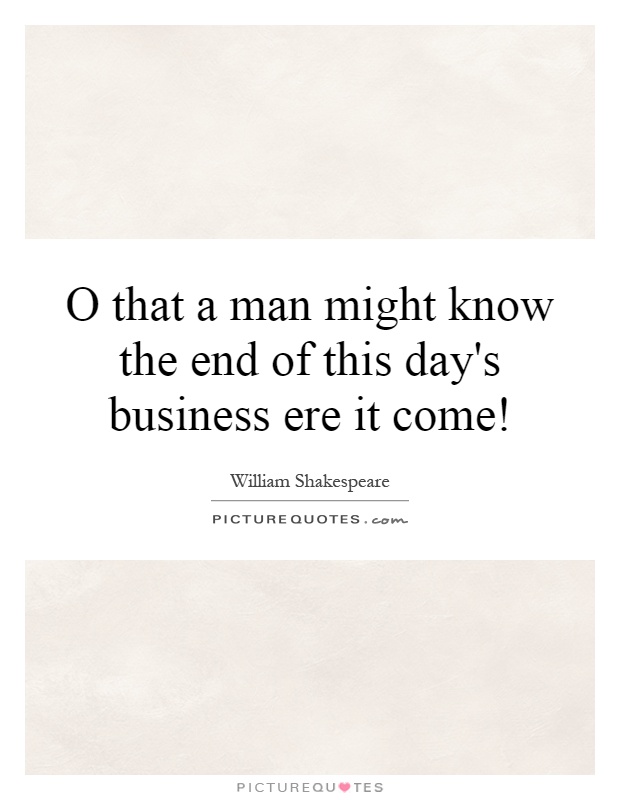O that a man might know the end of this day's business ere it come!

O that a man might know the end of this day's business ere it come!
The line "O that a man might know the end of this day's business ere it come!" is spoken by Macbeth in Act 3, Scene 1 of William Shakespeare's play, Macbeth. In this scene, Macbeth is reflecting on the events that have transpired so far and the uncertainty of what lies ahead. He is feeling overwhelmed by the weight of his actions and the consequences that may follow.This line captures the essence of Macbeth's inner turmoil and his desire to have some control over his fate. He longs to know the outcome of the day's events before they unfold, in order to prepare himself for whatever may come. This reflects the theme of fate versus free will that runs throughout the play, as Macbeth grapples with the idea of whether he is in control of his own destiny or if it is predetermined by supernatural forces.
The use of the word "business" in this line also adds a sense of urgency and importance to the situation. Macbeth is not just concerned with the events of the day, but with the larger implications of his actions and the impact they will have on his future. He is desperate for some clarity and certainty in a world that seems increasingly chaotic and unpredictable.
This line also highlights Macbeth's growing paranoia and fear as he becomes more entrenched in his quest for power. He is constantly on edge, unsure of who he can trust and what dangers may lie ahead. The uncertainty of the future weighs heavily on him, driving him to seek out answers and reassurance in any way he can.
Overall, this line encapsulates the central themes of ambition, fate, and the consequences of one's actions that are prevalent throughout Macbeth. It serves as a poignant reminder of the fragility of human existence and the constant struggle to find meaning and purpose in a world that is often beyond our control.












 Friendship Quotes
Friendship Quotes Love Quotes
Love Quotes Life Quotes
Life Quotes Funny Quotes
Funny Quotes Motivational Quotes
Motivational Quotes Inspirational Quotes
Inspirational Quotes